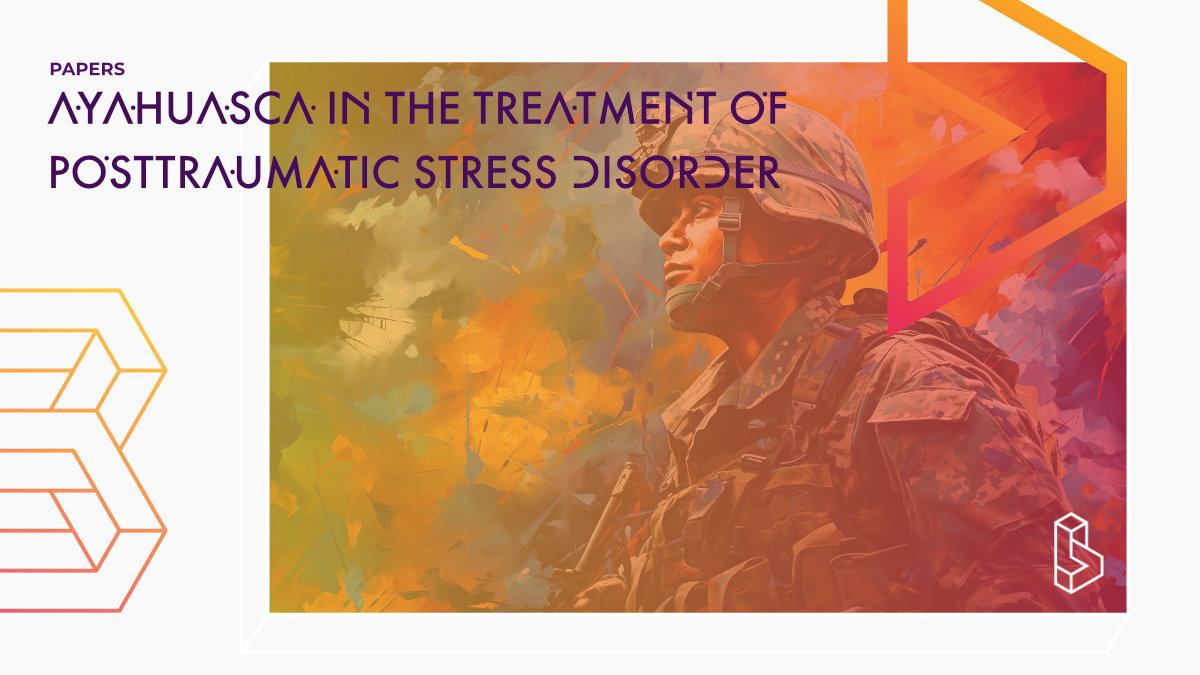This mixed-methods case series study (n=8) investigated the impact of a 3-day ayahuasca intervention on military veterans with PTSD. Results indicate that 71.4% of participants demonstrated clinically significant improvements in PTSD symptoms post-treatment, maintaining these changes at a 3-month follow-up. Veterans also reported significant improvements in momentary PTSD symptoms and daily life affect, citing deep positive emotions, decentering/acceptance, and purpose in life as perceived benefits.
Abstract of Ayahuasca in the treatment of posttraumatic stress disorder: Mixed-methods case series evaluation in military combat veterans
“Objective: Although ayahuasca—a plant-based psychedelic—is discussed as promising in the treatment of posttraumatic stress disorder (PTSD), evidence so far remains limited to retrospective case reports and qualitative surveys. No study to date has examined whether ayahuasca results in prospective and clinically meaningful changes in trauma symptoms across individuals with PTSD symptoms.
Method: To address this gap, we conducted a convergent mixed-methods case series study on eight military veterans with PTSD who participated in a 3-day ayahuasca intervention in Central America. Clinically meaningful changes from pre- to posttreatment and at a 3-month follow-up were assessed in three ways using: (a) PTSD checklist-5 (PCL-5); (b) experience sampling measurement of momentary PTSD and mood symptoms; and (c) an open-ended survey on perceived benefits.
Results: The majority (71.4%; 5/7) of participants demonstrated reliable changes in PCL-5 symptoms by posttreatment, which were maintained by 71.4%; (5/7) of veterans by the 3-month follow-up. On average, veterans also reported significant improvements in momentary PTSD symptoms, as well as negative and positive affect in daily life posttreatment, with 63% (5/8) reporting moderate-to-large improvements in these domains. Broad themes characterizing the perceived benefits of ayahuasca included deep positive emotions, decentering/acceptance, and purpose in life; adverse acute experiences were, however, reported.
Conclusions: This study provides preliminary support for the clinically meaningful and lasting benefits of a brief ayahuasca intervention on PTSD/mood symptoms in military veterans.”
Authors: Brandon Weiss, Lê-Anh L. Dinh-Williams, Nick Beller, Ian M. Raugh, Gregory P. Strauss & William K. Campbell
Summary of Ayahuasca in the treatment of posttraumatic stress disorder: Mixed-methods case series evaluation in military combat veterans
Posttraumatic stress disorder (PTSD) is often a chronic consequence of military deployments, persisting in the decades following exposure to a traumatic event. However, current treatments are limited and have high dropout rates and heterogeneous outcomes.
Ayahuasca is a psychedelic decoction that is often discussed as a promising treatment candidate for PTSD, yet evidence so far remains anecdotal. Qualitative studies have shown that ayahuasca may be an effective treatment for PTSD.
Using a mixed-method case series design, this study examined tolerability and changes in PTSD symptoms following an ayahuasca retreat in a sample of eight combat-exposed military veterans.
Find this paper
https://doi.org/10.1037/tra0001625
Open Access | Google Scholar | Backup | 🕊
Cite this paper (APA)
Weiss, B., Dinh-Williams, L.-A. L., Beller, N., Raugh, I. M., Strauss, G. P., & Campbell, W. K. (2023, December 7). Ayahuasca in the Treatment of Posttraumatic Stress Disorder: Mixed-Methods Case Series Evaluation in Military Combat Veterans.
Psychological Trauma: Theory, Research, Practice, and Policy. Advance online publication.
https://dx.doi.org/10.1037/tra0001625

